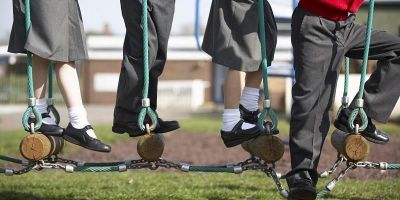Pandemic leaves two thirds of six-year-olds falling behind

COVID-19 pandemic has left two-thirds of Leeds’ six-year-olds behind in their development, researchers say.
Leeds academics have studied the impact of school closures during 2020 and 2021 on a group of about 450 of the youngest pupils in the city. These pupils were in reception class during the first, 14-week lockdown period in spring 2020, but had moved to year one during the second, nine-week lockdown, from January to March 2021.
In the foundation skills of literacy, maths, communication and language, and personal, social and emotional development, more than two-thirds were a year or more behind their expected attainment level when they reached the end of year one.
This age group of children have large gaps in the skills and knowledge they will need for later learning as they move through school. Schools will need sufficient time and resources to support them.
The researchers expected the pupils to be reading at level seven by the end of year one, but only 32% of children in the sample reached this level or higher – meaning 68% of children were not reading at the expected level for their age.
They found that children made more progress in reading levels during the second round of school disruption, but many did not catch up to where they should be.
The team has made a series of policy recommendations, including:
- ensuring that schools have sufficient time and resources to fully support this cohort of children through primary school
- introducing flexibility and an adjustment of expectations towards curriculum goals
- providing a range of homeschooling resources and at a measured pace
- children reading books online should be monitored by a member of teaching staff to ensure they are at the right level
- adjustments made for children less able to engage in home learning
The full report from the UKRI-funded study is available today on the project website.
Younger children in focus
Lead author Dr Hannah Nash, from Leeds’ School of Psychology, said: “The pandemic has interrupted learning for all children. We’ve heard a lot about older children and exams but less about the younger ones who had just begun their school journey.
“Despite improvements to remote learning between the two periods of school disruption, our findings show that children who were in reception classes in schools in Leeds during the first lockdown had not yet caught up in key areas by the time they had finished year one.
“Most had made progress but nearly two-thirds were reported to be working at, or below, the level that would be expected at the end of reception and two-thirds were not reading at the level expected for their age.”
Factors influencing children’s progress in reading included their starting level, which was the strongest predictor of their later level. School provision of resources also had an impact, with children who were provided with hard copy books making more progress.
In-school support
The researchers found children who remained in school, such as those whose parents were key workers, had better access to hard copy books, and that their reading level was more likely to be monitored there.
Children learning at home were more likely to have access to online reading books and their progress was less likely to be monitored.
The range of literacy resources provided by schools was also a significant predictor of progress, with children in schools that provided a wider range making more progress. However, when new activities were provided too often, children made less progress.
Other predictors were children’s EAL (English as an Additional Language) status, and whether they had additional classroom support before the pandemic. These children made less progress in reading during the first period of disrupted schooling, but not the second. Teachers reported a wider range of activities and increased use of online lessons during the second period, which may have helped to support these children.
Dr Nash said: “In preparation for any future periods of school disruption it is vital that funding is ring-fenced for remote schooling. Young children need access to a range of resources that are at their level including hard copies of reading books. These resources need to be shared with families at a steady pace and in a structured manner, to enable caregivers with limited time to make confident choices for home learning.
“This age group of children have large gaps in the skills and knowledge they will need for later learning as they move through school. Schools will need sufficient time and resources to support them.”
Further information
Picture: Adobe Stock
For media enquiries, contact University of Leeds press officer Lauren Ballinger by email: l.ballinger@leeds.ac.uk.
This study is funded by the Economic and Social Research Council (ESRC) as part of UK Research and Innovation’s rapid response to COVID-19.
Reports from the project, named ICKLE, can be downloaded from the project website.




